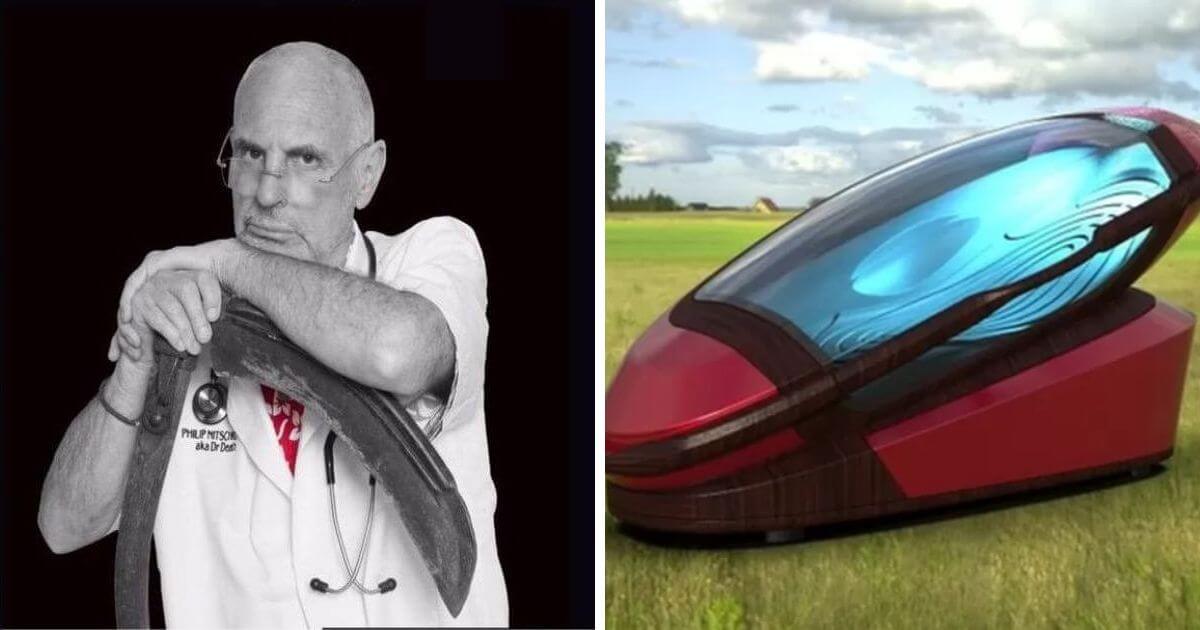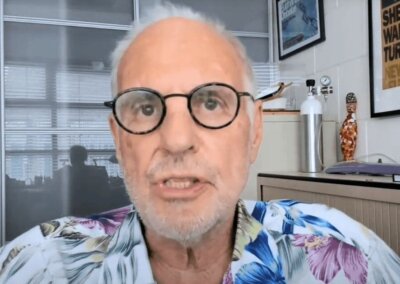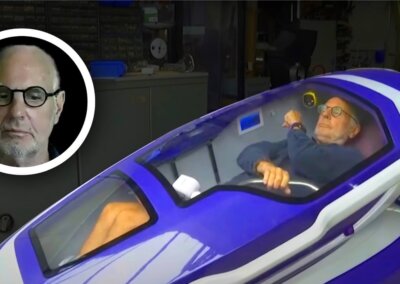The inventor of the suicide capsule has revealed that the device’s software will ask three questions of the user before it turns on the power so that the user can press the button to end their own life.
Dr Philip Nitschke, founder of the suicide advocacy group Exit International, originally introduced the device, which he calls the “Sarco machine”, in 2019. In an interview with SWI swissinfo.ch given in 2021, Nitschke said “It’s a 3-D printed capsule, activated from the inside by the person intending to die. The machine can be towed anywhere for the death”.
“The person will get into the capsule and lie down … They will be asked a number of questions and when they have answered, they may press the button inside the capsule activating the mechanism in their own time”.
Describing the actual manner of death, Nitschke said “The capsule is sitting on a piece of equipment that will flood the interior with nitrogen, rapidly reducing the oxygen level to 1 per cent from 21 per cent in about 30 seconds. The person will feel a little disoriented and may feel slightly euphoric before they lose consciousness. Death takes place through hypoxia and hypocapnia, oxygen and carbon dioxide deprivation, respectively”.
Nitschke recently revealed that the pod will ask the user three questions, which are “Who are you?”, “Where are you?” and “Do you know what happens if you press the button?”.
If these questions are answered verbally, and a final confirmation is given to proceed, the software will switch the power on so that the user can press the button that floods the capsule with nitrogen.
The pod has not yet been approved for use in any country although Nitschke has said that he has plans to roll out the suicide capsule in Switzerland, where assisted suicide is legal.
The machine is intended to remove the need for doctors’ involvement
In 2021, Nitschke said “Currently a doctor or doctors need to be involved to prescribe the sodium pentobarbital and to confirm the person’s mental capacity. We want to remove any kind of psychiatric review from the process and allow the individual to control the method themselves”.
He added “Our aim is to develop an artificial intelligence screening system to establish the person’s mental capacity. Naturally there is a lot of scepticism, especially on the part of psychiatrists. But our original conceptual idea is that the person would do an online test and receive a code to access the Sarco”.
Under the frequently asked questions on Exit International’s official page on the Sarco pod, the organisation claims that safeguards are in place against misuse, specifying that “The detailed technical specifications and plans will only be available to subscribers to The Peaceful Pill eHandbook. This book is restricted to people [older than] 50 years & of sound mind”.
Assisted suicide does not always go according to plan
While Nitschke suggests that death would take 5-10 minutes, physicians from countries that have already made assisted suicide and euthanasia legal tell a different story. Dr Brick Lantz, orthopaedic surgeon and state director of the American Academy of Medical Ethics, emphasised that it is not uncommon for an assisted suicide to go wrong.
“The failures are brutal when someone fails assisted suicide and the failures are not infrequent. In fact, there was one that woke up from a coma after multiple days. There was a nurse at the bedside of one who ended up putting a plastic bag over the patient to kill the patient because they weren’t dying”, he said.
Dr Lantz also pointed out that the safeguards in Oregon that are intended to protect the vulnerable do not work. “The safeguards in Oregon are not being followed. That includes the psychiatric referral, second opinion and the 6 month time estimate for death”, he said.
Spokesperson for Right To Life UK, Catherine Robinson, said “Dr Nitschke’s suicide machine is not only a clearly horrendous concept, but it is becoming increasingly clear how few realistic safeguards are in place for those who might attempt to use the device in future. This apparently fully automated process is a disaster in waiting. Relying on an online test to establish whether a person is of “sound mind” is already open to abuse. To then rely on a machine-based final assessment of the individual’s identity and awareness of their actions once again removes the decision making from any human authority with the patient’s best interests in mind”.












